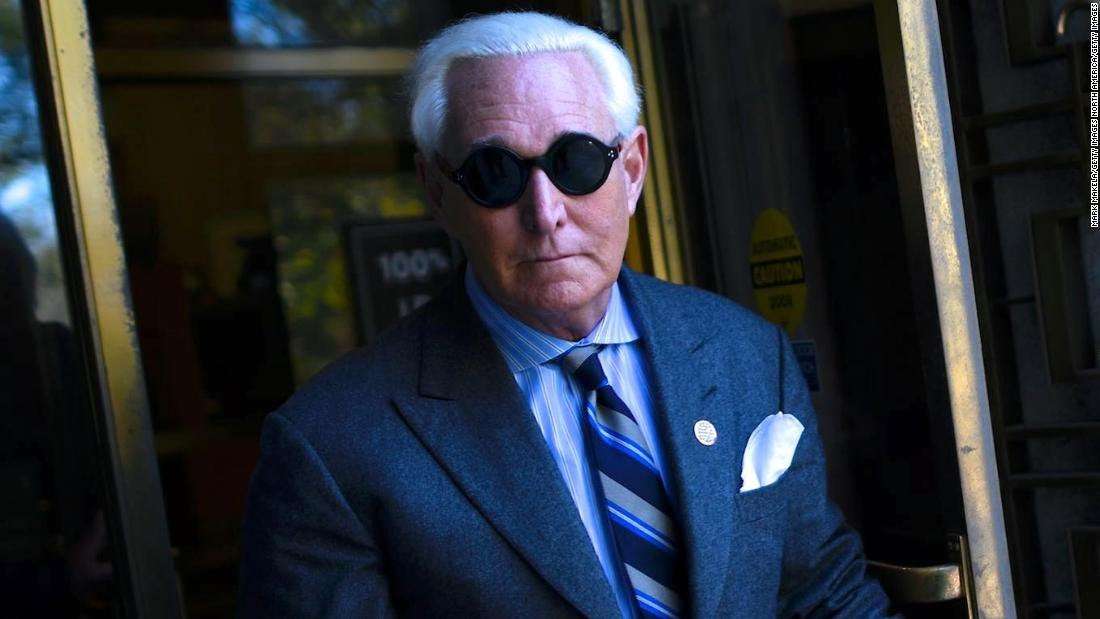Gerald B. Lefcourt is past president of the National Association of Criminal Lawyers, a founder of the New York State Association of Criminal Defense Lawyers, founder and past president of the New York Criminal Bar Association. He is currently in private practice. Robert C. Gottlieb served as an Assistant District Attorney in New York under Robert Morgenthau before founding his own criminal defense law firm Gottlieb & Janey, LLP in New York City. The opinions expressed here are their own. Read more opinion at CNN.
(CNN) To almost no one's surprise, days before Roger Stone's prison sentence was about to begin, President Donald Trump has spared his long-time political crony from the pen — late Friday, Mr. Trump commuted Stone's sentence. It is time for New York prosecutors to answer this latest assault by Trump on the rule of law: They should ready a state prosecution of Stone.
Bringing a new case against Stone is possible thanks to Governor Andrew Cuomo and the New York Legislature for Assembly Bill 6653. Signed into law last October, AB6653 enables New York district attorneys to prosecute what effectively amounts to certain friends and family of any president who pardoned them for federal convictions. Among the people who can be prosecuted are associates with information relevant to a civil or criminal investigation of the president.
Both of us have been criminal defense lawyers in New York for more than 40 years. It is not our habit to advocate prosecuting anyone. But we are defenders of our Constitution first. It is under assault.
Consider what has happened. A federal jury convicted Stone in November 2019 of witness tampering and lying to Congress in its investigation of Russia's election interference in 2016, including alleged collusion between Moscow and Mr. Trump's 2016 election campaign.
Stone's lies covered up his contacts with Wikileaks, which had dumped into the public domain thousands of documents that Russian intelligence hacked from the Democratic National Committee and Hillary Clinton's campaign chairman John Podesta.
More importantly, as the judge sentencing Stone said in February: "He was not prosecuted, as some have complained, for standing up for the president. He was prosecuted for covering up for the president."
Two examples: In July 2016, immediately after a phone call with Stone, Trump told his deputy campaign chairman that "more information would be coming." That same month, following a call from Mr. Trump's phone line, Mr. Stone directed a colleague to "see Assange" -- a reference to Wikileaks founder Julian Assange.
Stone's subsequent federal conviction for witness-tampering involved the testimony of his one-time friend, Randy Credico. Under oath to Congress in September 2017, Stone falsely denied having exchanged emails with Credico about Wikileaks.
The indictment states that Stone allegedly told Credico to "prepare to die," and that he should either avoid testifying by taking the Fifth Amendment, or he should do like the character in The Godfather Part II, Frank Pentangeli, and lie.
Credico lives in New York. It is a felony under New York's Penal Code to intimidate a witness to prevent him from communicating incriminating information to a prosecutor by instilling a fear of physical injury. It is a misdemeanor to induce a witness to avoid testifying in a legal proceeding.
Of course, New York prosecutors would have to consider the Supreme Court's 1956 decision in Pennsylvania v. Nelson. There, the Court invalidated a state conviction for violating Pennsylvania's Sedition Act, holding it displaced by federal sedition statutes which "occupied the field."
In that case, however, Congress and the Executive Branch had treated seditious acts as a matter of purely national concern through the appropriation of vast sums to multiple federal agencies and a broad regulatory scheme. There were also sound reasons that federal courts alone had oversight to balance proper enforcement interests with individuals' right to dissent. Those factors are absent from a state prosecution for witness tampering.
Get our free weekly newsletter Sign up for CNN Opinion's new newsletter. Join us on Twitter and Facebook
Moreover, Stone's case presents narrow circumstances unique in our history. US presidents have broad powers to pardon and commute sentences. However, here we have federal law enforcement neutralized by a president's commutation rewarding the cover-up to protect Trump. A state prosecution would put on trial a man we know is guilty.
Far outweighing any legal risk of bringing Stone to justice in New York is the national benefit: Standing up for the rule of law, showing that it survives in the offices of state prosecutors, if not in the White House.

UglyWanKanobi on July 13rd, 2020 at 04:40 UTC »
They passed a law specifically for cases like this.
Now they need to match the words with action.
whozwat on July 13rd, 2020 at 04:20 UTC »
This is an interesting read. Overviews evidence from Stones trial that is stunning and revealing of Trump's level of corruption and complicity with Russia.
inmyelement87 on July 13rd, 2020 at 03:33 UTC »
I was really hoping to bid on those stunner shades at a Treasury Department auction.